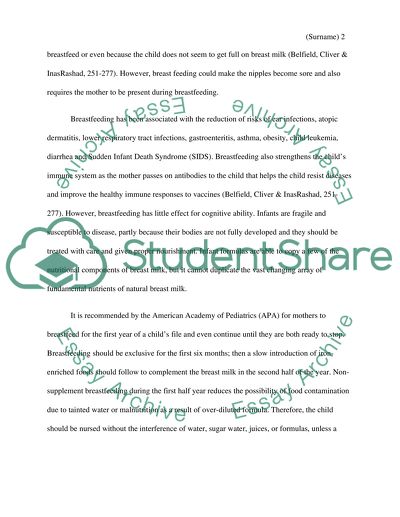Cite this document
(“Nutritional benefits of breast-feeding vs. formula bottle-feeding Essay”, n.d.)
Retrieved from https://studentshare.org/health-sciences-medicine/1489704-nutritional-benefits-of-breast-feeding-vs-formula
Retrieved from https://studentshare.org/health-sciences-medicine/1489704-nutritional-benefits-of-breast-feeding-vs-formula
(Nutritional Benefits of Breast-Feeding Vs. Formula Bottle-Feeding Essay)
https://studentshare.org/health-sciences-medicine/1489704-nutritional-benefits-of-breast-feeding-vs-formula.
https://studentshare.org/health-sciences-medicine/1489704-nutritional-benefits-of-breast-feeding-vs-formula.
“Nutritional Benefits of Breast-Feeding Vs. Formula Bottle-Feeding Essay”, n.d. https://studentshare.org/health-sciences-medicine/1489704-nutritional-benefits-of-breast-feeding-vs-formula.


